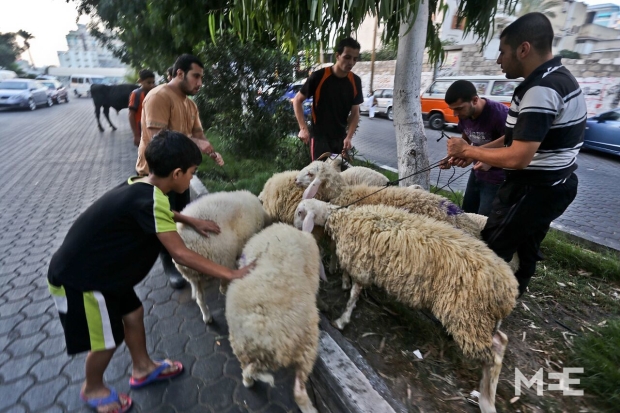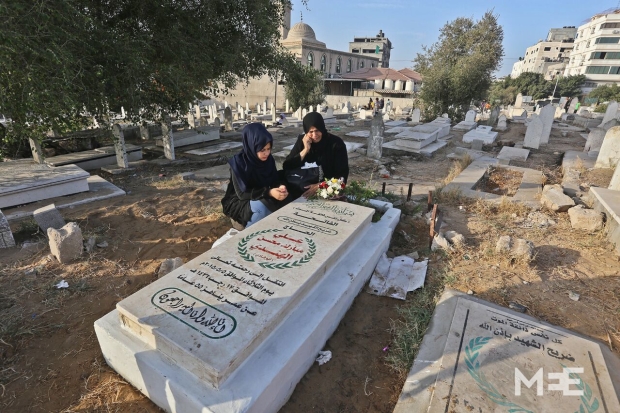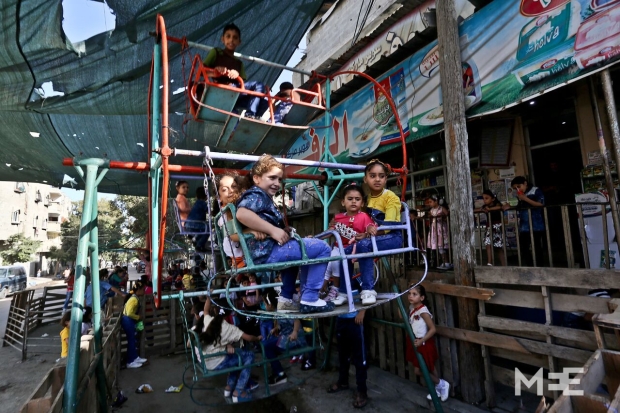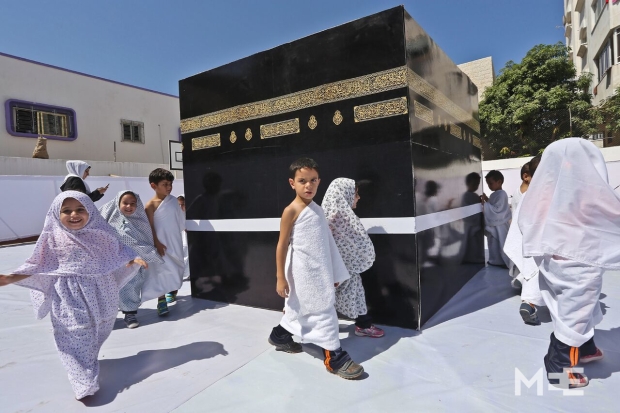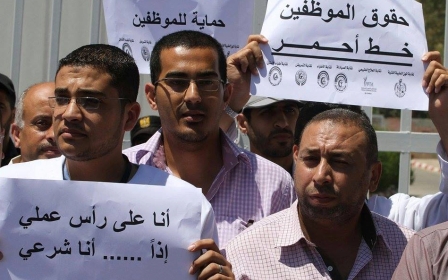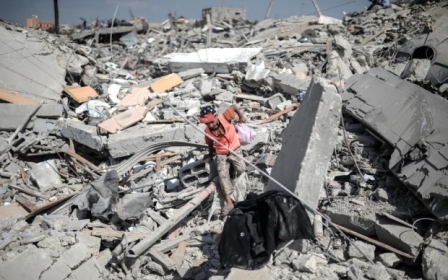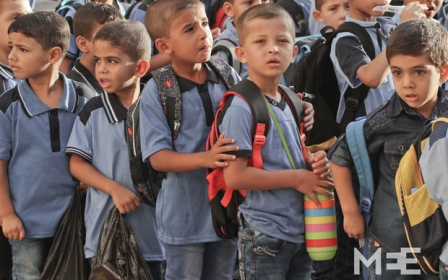In Gaza, it may not be perfect but it’s Eid
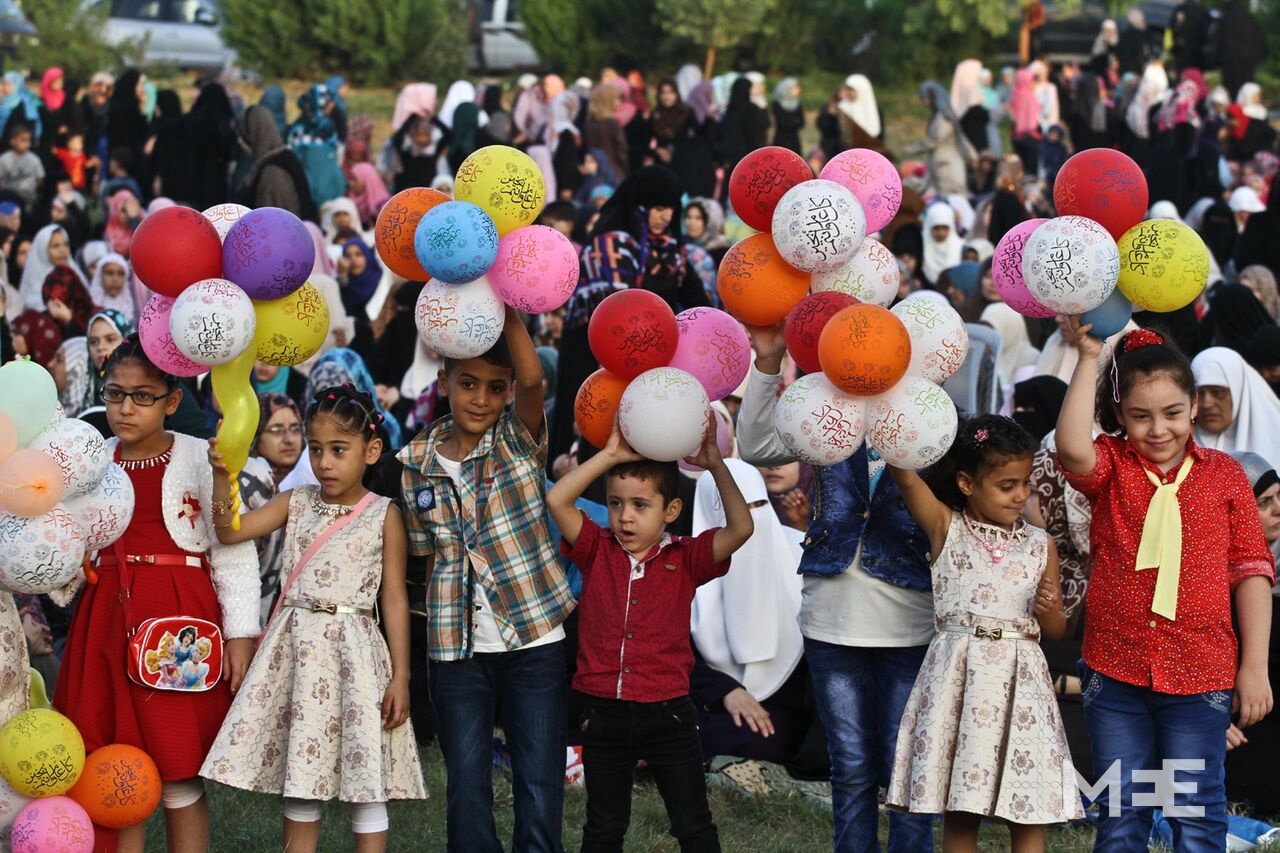
The mosque loudspeakers are busy sending out messages of welcome, mostly from children chanting the special Eid Takbeer. At 6am in West Rafah, the street is filled with adults and children, including little Ismail shouting to his younger brother, Zuhdi, also heading towards Bilal Ben Rabah mosque.
Some of the people are leading cows and sheep to be sacrificed for the celebration after Eid sunrise prayers, their meat is distributed among the poor so they can celebrate too. Eid al-Adha marks the end of the Muslim Hajj by sacrificing precious livestock to mark reverence to Prophet Abraham's willingness to sacrifice his son - Ismail - on God's command.
Down the street, more women are heading towards the local mosque. For Umm Ahmed, 55 years old, it is a very special day when women attend Eid prayers and get the chance to chat with the other ladies.
“We also use this joyful occasion to remember those we have loved and lost during last year’s war,” says Umm Ahmed, who lost her young brother-in-law in an Israeli airstrike.
Everyone is heading towards something on the first day of Eid - whether it be joy or mourning. Gaza’s streets are buzzing - but the common topic of discussion is still Israel’s blockade and the soaring prices of livestock in Gaza.
Despite the constant pain and difficulties, 14-year-old Basheer Sufi says that Gaza’s people will continue to celebrate life and the Eid.
“Our life must go on, nonetheless,” says the young poet who joins his father and siblings to visit uncles and aunts, as many Muslims all over the world do, during this season of celebration and contemplation.
Not only joy
But though the habit never ends in Gaza, people who lost their loved ones over the years lose the meaning of celebration without having their family members around. They tend to visit graveyards and water the flowers by sitting for a moment of reflection with silent stones.
The joy can be felt among the people walking to and from family, but many of these people would rather drive or take the bus, were it not for the extreme long-term shortage of fuel in Gaza caused by Israel’s tight control of the crossings, especially during similar Jewish holidays and celebrations.
Typically, Gaza stocks last only a few days, and all the gas stations have announced zero supplies of fuel until after the Jewish holidays. Israel says it did open the crossing, but still the fuel crisis is apparent on the streets of Gaza with less mobility between cities, and thousands of people, including elderly and sick, either rushing for a handful of buses or just walking to their destination.
“Last night, I waited until midnight, hoping some fuel would be allowed in - but today I am running on near-empty, and I don’t want to strand my passengers in the middle of nowhere,” says Mustafa Abu Hanafi, a 23-year-old taxi driver.
Abu Hanafi says that he is unable to meet his customer’s demands. Fuel is not available to him as Israeli-controlled crossings are shut for Jewish holidays.
His office is like a sauna, on the first day of Eid, as mosques call for the second prayer of the day and he’s passing a tissue to wipe his wet brow and hands. The silver-coloured Hyundai taxi is still parked in the outside. He can’t stand the huge number of passengers and he can’t work.
“Sometimes I wonder why we accept such a life under occupation and blockade,” he vents in frustration, as his colleague interrupts by saying: “It’s the price we are made to pay for just being Palestinian and refusing to leave our homeland.”
At Eid when families gather, the most discussed topics are: absence of living wage for 45,000 public service employees hired by Gaza’s de facto authorities in 2007, following the fighting between Fatah and Hama, when and the PA ordered all employees to stay home, making it difficult for Hamas to run the coastal enclave.
The discussion continues about poverty and unemployment in Gaza which are the result of nine years of Israeli blockade.
Umm Ramzy sits outside her house taking some fresh air and to escape the oppressive heat indoors - she takes the time to discuss with her 26-year-old son the ongoing power outages affecting her life and shutting off her cooling fans.
Umm Ramzy’s husband died in 2012, and those who can, share their Eid’s meat with her when she has none. This year fewer people are able to share with their more desperate neighbours, and even if they do, she has no electricity to keep the 20 kilos of meat rations refrigerated. People and charities try to be generous, but constant power cuts ruin the storage of meat. It’s Umm Ramzy’s only chance to get meat, as she can’t afford to buy it.
“How am I expected to store the meat when power is out for up to 12 hours per day” she told MEE.
Gaza has suffered dire outages of electricity over the past few weeks - a crisis which makes life more difficult than ever. Despite this, Umm Ramzy says that “Eid is Eid and we celebrate our life continuing."
She sits with her second oldest son, Jamil, waiting for relatives to stop by and visit - even though she knows she can’t offer them as much as she might have in years gone by.
“It is a very odd reality, in Gaza we serve warm cola and cold bread,” she says as she uses a tin dish as an improvised hand fan to cool her face. She has become accustomed to attrition over the years of Israel’s punishment. Pain and difficulty is now the unwelcome norm in Gaza. What she does not know is that Gaza is likely to become uninhabitable by 2020 according to UN.
Back at the mosque of Bilal Ben Rabah, it is packed with people from across the city, chanting the same words as those going for Hajj in Saudi Arabia.
The Imam takes the floor, asking worshippers for reflection on, and connection with Allah and the poor people. There is also mention of the political context affecting every Gazan citizen - the blockade of Gaza - in the 15-minute Eid speech.
Those praying in the mosque realise the cost of the blockade, being just a few hundred meters away from the border with Egypt which is busy digging a water canal as a barrier to cut off the lifeline tunnels to Gaza.
For years, these tunnels have been the only lifeline for Gaza’s Palestinians. The blockade of Gaza, now endorsed by Cairo, is another main topic of discussion -despite the attempts to forget and enjoy Eid, as people smile and share food with one another. But there is something deeper which haunts them. A prison camp is still a prison camp, says the Imam.
“We stick to the religious symbolism of Eid, but political reality does not offer much to celebrate,” says frustrated driver, Abu Hanafi, as he cleans the windshield of his taxi which has been sitting for hours collecting dust.
He says his joy will come when he sees open borders and is reunited with his older brother in Algeria without the fear of being locked down at border crossings.
The children of Eid, nonetheless, find a way to escape political hardship in temporary celebration - after all, it is Eid and has to be celebrated, somehow.
New MEE newsletter: Jerusalem Dispatch
Sign up to get the latest insights and analysis on Israel-Palestine, alongside Turkey Unpacked and other MEE newsletters
Middle East Eye delivers independent and unrivalled coverage and analysis of the Middle East, North Africa and beyond. To learn more about republishing this content and the associated fees, please fill out this form. More about MEE can be found here.


